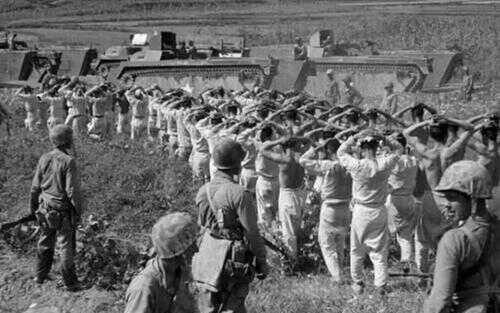In many anti-Japanese war films on the mainland, Chinese have played the role of benevolence and kindness without exception, so there will certainly be many people wondering, is this really the case in historical facts? Does the TV series deliberately beautify the image of the countrymen? A Japanese drama "Red Cross: Women's Enlistment Notice" can tell you the answer.
This drama is set in the Second World War, adapted from real events, telling the story of the female nurses of the Japanese Kwantung Army during the war, when Japan defeated the Soviet Union, they were abandoned by the state and exiled to the three eastern provinces of the mainland, but the Chinese people did not treat them as enemies, but used the practice of revenge with virtue, so that they felt the rare warmth of the wartime.

The Kwantung Army was once the pride of the Japanese legions and the pride of the Imperial Army, so why were they abandoned in other countries? In fact, during the Meiji Restoration period, the Kwantung Army was indeed the most prominent army among Japan's many armies, they were stationed in northeast China all year round, the weapons and equipment and food and clothing resources used were the most exquisite, even if they fought, they would not easily play, they all appeared as the finale.
But it was such an army that was highly valued by the Japanese state, and in the Pacific War, when they became the country's last hope, they were defeated by the US military, and it was this defeat that began to change Japan's attitude toward the Kwantung Army, not only reducing their investment in all aspects, but also reducing the number of their troops.
As the saying goes, the higher the hold, the more miserable the fall, perhaps the Kwantung Army can not accept such a cold treatment for a while, the morale of the officers and soldiers is no longer the same as in the past, many people even when the Soviet Union invaded Japan, chose to be deserters, there are data records, 680,000 Kwantung Army, there are nearly 600,000 deserters, regardless of the national stance, deserters are the most unpopular existence.
Later, the Soviet army selected strong and elite captives for their own use, as for those who were seriously injured, the disabled and the old and weak women and children were abandoned by them, and Japan did not care about their lives or deaths, the hundreds of thousands of Kwantung Army was sent back to the northeast, we all know that the winter in the three eastern provinces is particularly long, and it is the coldest area on the mainland, those disabled soldiers who are seriously injured can only wait for death without food and medical resources, and others have died of illness in foreign countries because of famine, plague and other reasons.
With the passage of time, these Japanese people in exile on the mainland have also become a major problem on the mainland, how will the Chinese government and the local people deal with these refugees? Chinese's inner tolerance and benevolence cannot be expressed in two words, and it is also true that the local people feel that those Japanese orphans are very pitiful when they are abandoned, and they can't afford to expel or put them to death, and they even mobilize capable families to claim them.
In the end, most of the Japanese children were brought home by the Chinese, and the female nurses who were accompanied by the PLA were scattered in the field hospitals scattered around the country, and after the war, they were safely sent back to Japan, and the ending was very good.
Chinese in the face of Japan's invasion of the mainland, they still can't forget the hatred engraved in their bones, but when they see children and women who are also Japanese, they have compassion and extend a helping hand,Chinese and it is this quality of repaying grievances with virtue that makes those Japanese female nurses have a different view of China.
No matter how cruel the war is, no matter how merciless the sword, the kindness of the human heart is enough for us to gain a little warmth in the indifferent war, Chinese face the brutality of other countries, we can still have an empathy and treat them kindly. "I am proud to be born in such a country full of justice and love.